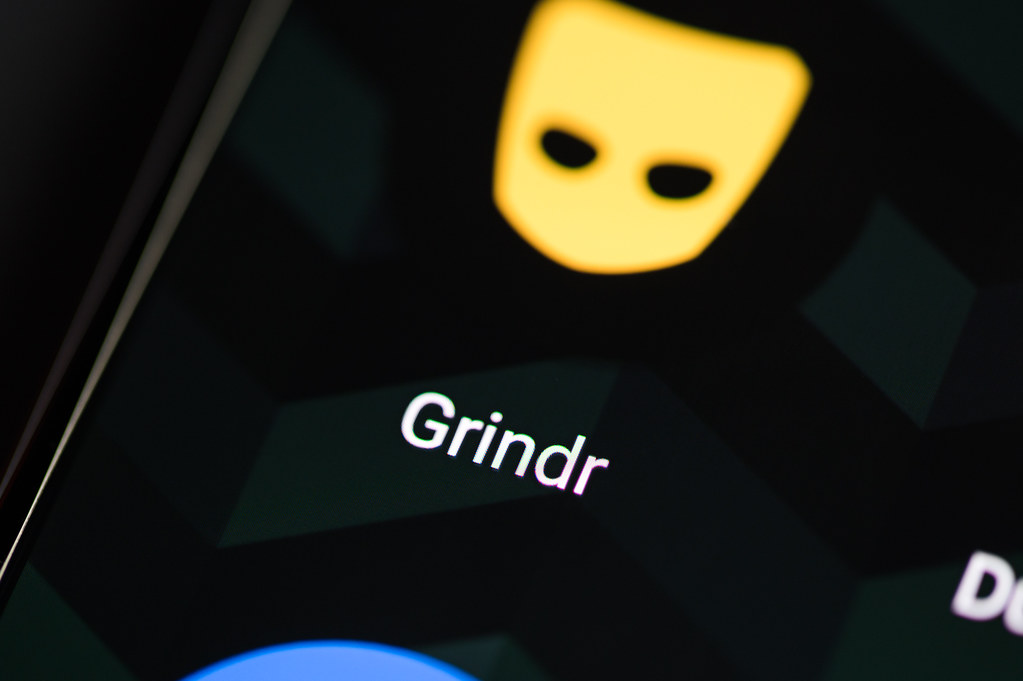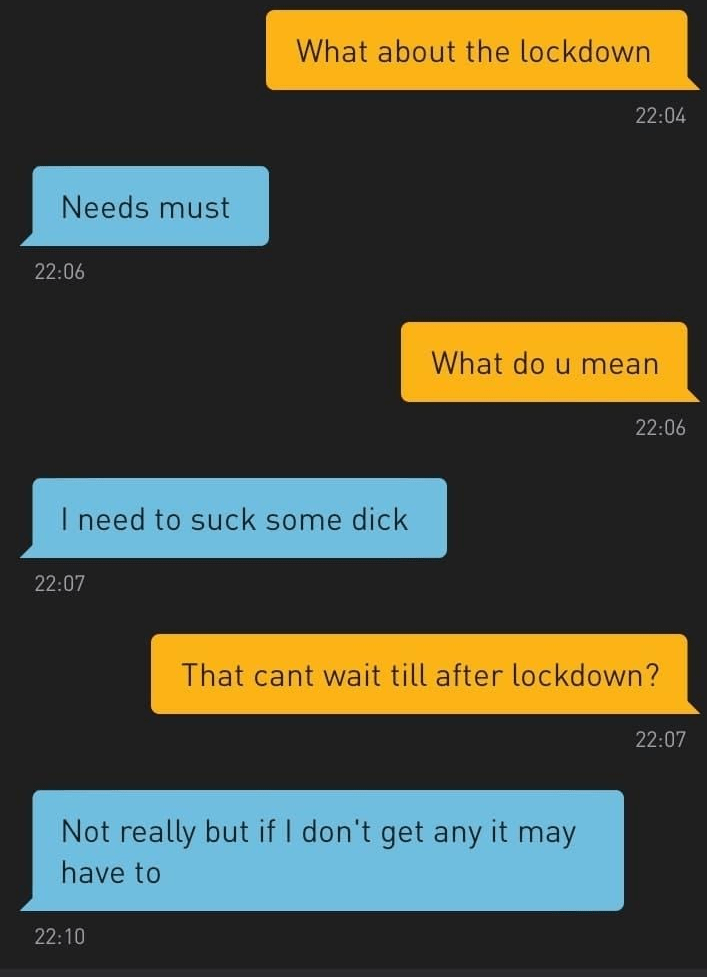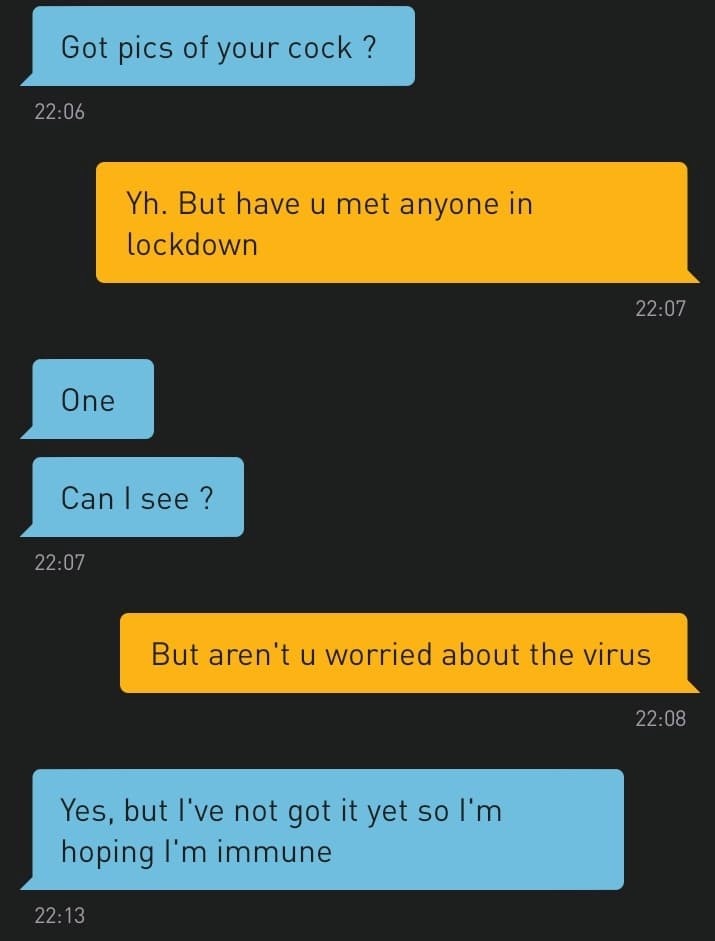Grindr Still Grinds On During Lockdown

Being single and alone during this lockdown has been, to say the least, a test. Such mass loneliness is unheard of in modern times. This difficult ordeal is neatly reflected in the estimated increase in use for online sex work platforms OnlyFans and Patreon. These two controversial sites do, by nature, abide by social distancing sites.

One dating app that does not is Grindr. Characterised by its seediness and the ability to enable quick hook-ups, it is also the world’s largest LGBT dating site, predominantly focused on gay men. It can work great for some people, being a modern step of coming out for many, and the general feeling in the gay community is that Grindr is a bit like hell on earth. I chose to focus my limited investigation on Grindr because I felt like it’s users were likely to be breaking the rules, which was confirmed by friend, “M”. He mentioned in passing how shocked he was about men repeatedly asking to meet up with him during the crisis. The reckless users we did find on Grindr are not reflective of the app itself, and definitely do not speak for the wider gay community.
I wanted to see how long it would take for a blank, anonymous profile to be asked to break the quarantine restrictions. It took less than 10 minutes. I came up with the name Joshua Meyer, inspired by Rachel’s Season 4 boyfriend on Friends and the author of Twilight, and purposefully white-sounding. A profile without a picture, which is extremely common on the site, and sadly often essential to prevent outing and persecution. It is unethical to create a fake name, but it is not illegal for online dating, especially on Grindr where men depend on their aliases. My friend M chose to set the age as 18, the same as my own. I was shocked to see such a substantial response.
He managed the account, creating it late on Wednesday 18th April and deleting at the end of Saturday. Over these few days, there were 127 page views, 61 uninitiated conversations and 22 of those blatantly proposed breaking the lockdown. Lewd conversations are part and parcel on Grindr, but the flippant abuse of laws, strict but vitally in place to save lives, is a deliberate and dangerous attack on others. The yellow chat boxes are my friend M, a master in playing it cool online. M did not go on any meetings or even plan any – he was there to remind the other person of the current lock down. When asked, one person revealed they have broken lock down once, telling this to a faceless stranger. This shows how unfortunately there are people foolishly believing they are immune and that their actions will have no consequences on others.
Needs, including sexual needs, have to be met in alternative ways. It is necessary for your physical and mental health to regulate your libido, but your own sexual desire should never harm others – certainly not for impatient hook-ups in a pandemic. This selfish entitlement is careless when the country has suffered, even with the vast majority of people following the new restrictions. Wanting another’s touch obviously does not make you a criminal – one of the strange elements in this artificial new environment is that it prohibits even the slightest of touches. Sex is crucial to our identity, but it cannot be placed above overall well-being. This is a a time of national solidarity, but on a personal level, a necessary love drought.

A spokesperson for Grindr responded to my enquires about their policies to help users and whether Grindr will be affected by the new contact tracing app with a standard statement:
“The health and safety of our users is a top priority for Grindr. We have issued in-app notifications reminding users to follow public officials’ COVID-19 guidance, including to refrain from in-person meetings right now. Grindr provides users with the ability to connect with others in the LGBTQ community – even if it’s only online as we see many people doing through our chat or video functionality. This life-affirming connection is especially important during this time of physical and social isolation. In addition, Grindr for Equality is working to match our users all over the world with the most relevant local information about the virus as well as LGBTQ health in this situation. Physical isolation doesn’t have to mean social isolation. We are proud that Grindr remains an open platform for our community to safely connect and thrive.”
The idea of an online community is a great thing, but this does not reflect the Grindr that M and I saw. I asked Grindr about whether and how their data will be used worldwide for the end of the quarantines. Twitter banned Grindr from its ad platform due to the latter’s unethical sharing of third-party information. The idea that sensitive phone data collected from dating apps might be used is shocking, but logical. In the background throughout this crisis, there has been the use of phone data to monitor activity. Grindr innovated the use of location tracking which is key to the app’s success of enabling convenient sex. Will the UK or EU use this data to the advantage of many, or will they maintain the privacy of mostly vulnerable groups?
It may seem from these messages that scores of people will be willing to indiscriminate themselves just to have sex, but I suspect that single people will now be hesitant to forge instant connections. The looming fear of infection is powerful. Grindr and other dating apps will have a lasting shift in mindset. People cannot be cooped up indefinitely. Factoring in people’s sex lives will quicken the end of lockdown. The lack of sex, sacrificed by most singletons, is itself an important loss that will take time, and real human connection, to heal.
Since the writing this article, Grindr have added this notice to the app, encouraging people to ‘stay home and avoid meeting up in-person’:
Header Image Credit: Flickr
